- Poor Jack's Almanack
- Posts
- Thoughts on London
Thoughts on London
What Life is Like Across the Pond
This is a bit of a departure from my usual posts and more so just some personal musings/stream of consciousness I’ve been thinking about on my travels to London.
I know it’s a bit sacrilegious to talk about the qualities of European cities the week after the 4th of July (especially London), but I think coming to know different cultures through travel can give you a new appreciation for the qualities that make your own culture unique. I certainly feel that way about America!
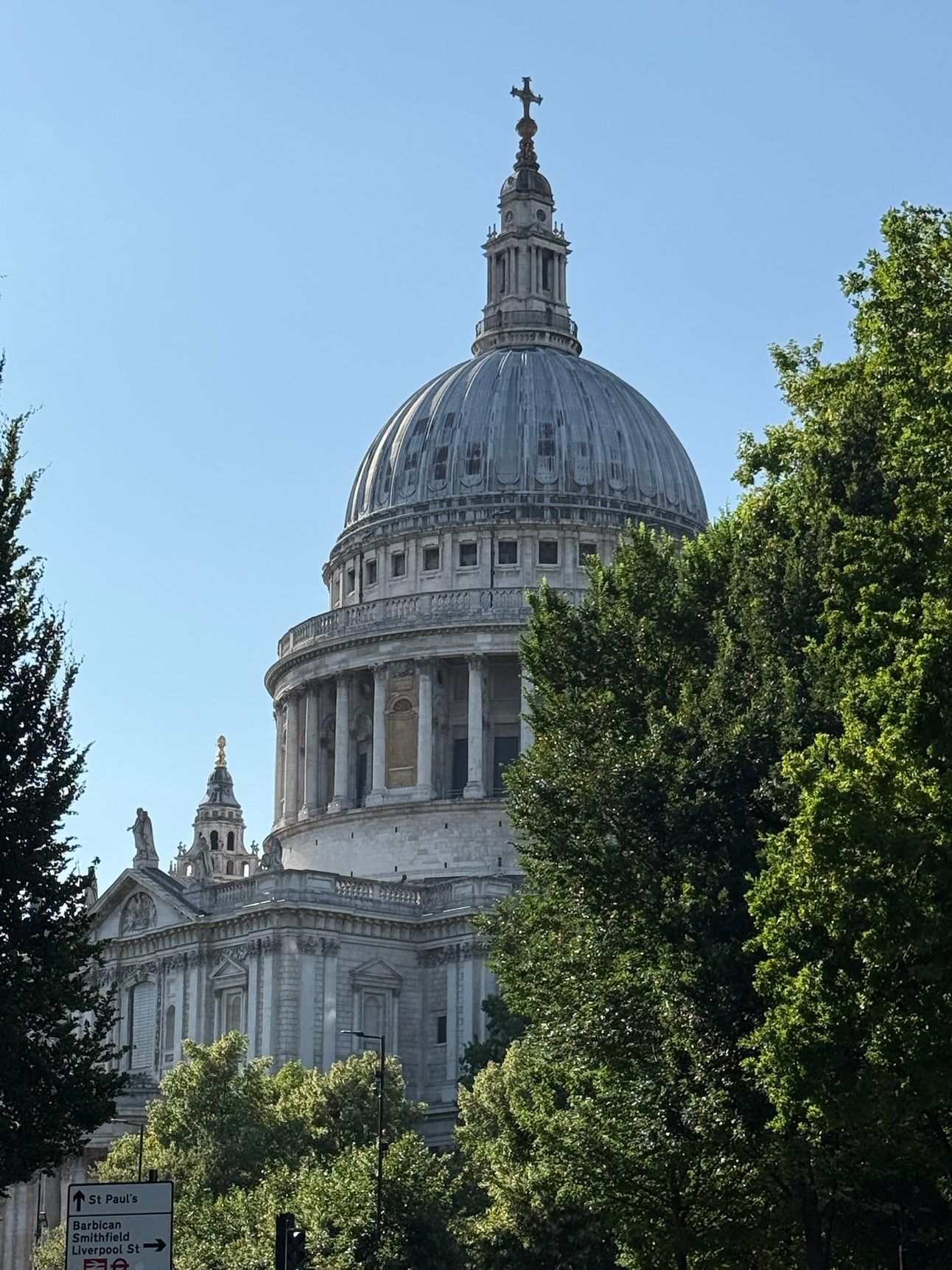
St. Paul’s Cathedral in London.
A couple weeks ago I finished my two year stint in investment banking and with around 2.5 months until my buyside role begins I have an unburdened amount of time on my hands the likes of which I’ve rarely had, and likely won’t have again in the future until I’m retired.
So, fully cognizant of how valuable this time is, I decided to do some traveling.
On July 1, I flew into London with my parents and one of my brothers. We had a rude welcome when we arrived at Heathrow and couldn’t find our driver.
We traversed the baggage claim area back and forth, repeatedly looking for a driver who held a sign with our name but had no luck.
After growing impatient with our taxi service we decided to call the company to locate our driver - thankfully they said the driver was only 5 minutes away so we set our bags down and proceeded to wait. But after 30 minutes the driver still wasn’t there. We called the company back and again the company insisted that the driver was only 5 minutes away.
After repeating this process a few more times and waiting a total of 2 hours we gave up on the taxi service and decided to take the train.
However, after advancing a few stops on the train, the conductor announced that the train had to stop due to maintenance issues and the entire line would be shut down for the foreseeable future. So we debarked and decided to call an Uber (what we should have done in the first place).
The Uber took 30 minutes to reach us and by the time we entered the sanctuary of the air conditioned minivan, we were all doused in sweat and highly irritated.
In fact, I was ready to write off the entire United Kingdom at that moment as inferior to the US. Afterall, the process of getting an Uber out of any American airport is a total cakewalk, highly reliable, and usually pretty affordable. This seemed a surefire sign of the superiority of our culture and economic system.
But my anger with the country soon gave way to fascination after we arrived at the house of some family friends who live in the Islington burrow of London. After we dropped our luggage off in our rooms, showered, and changed into fresh clothes, we decided to take a stroll around town, or as the British call it “go for a wander”.
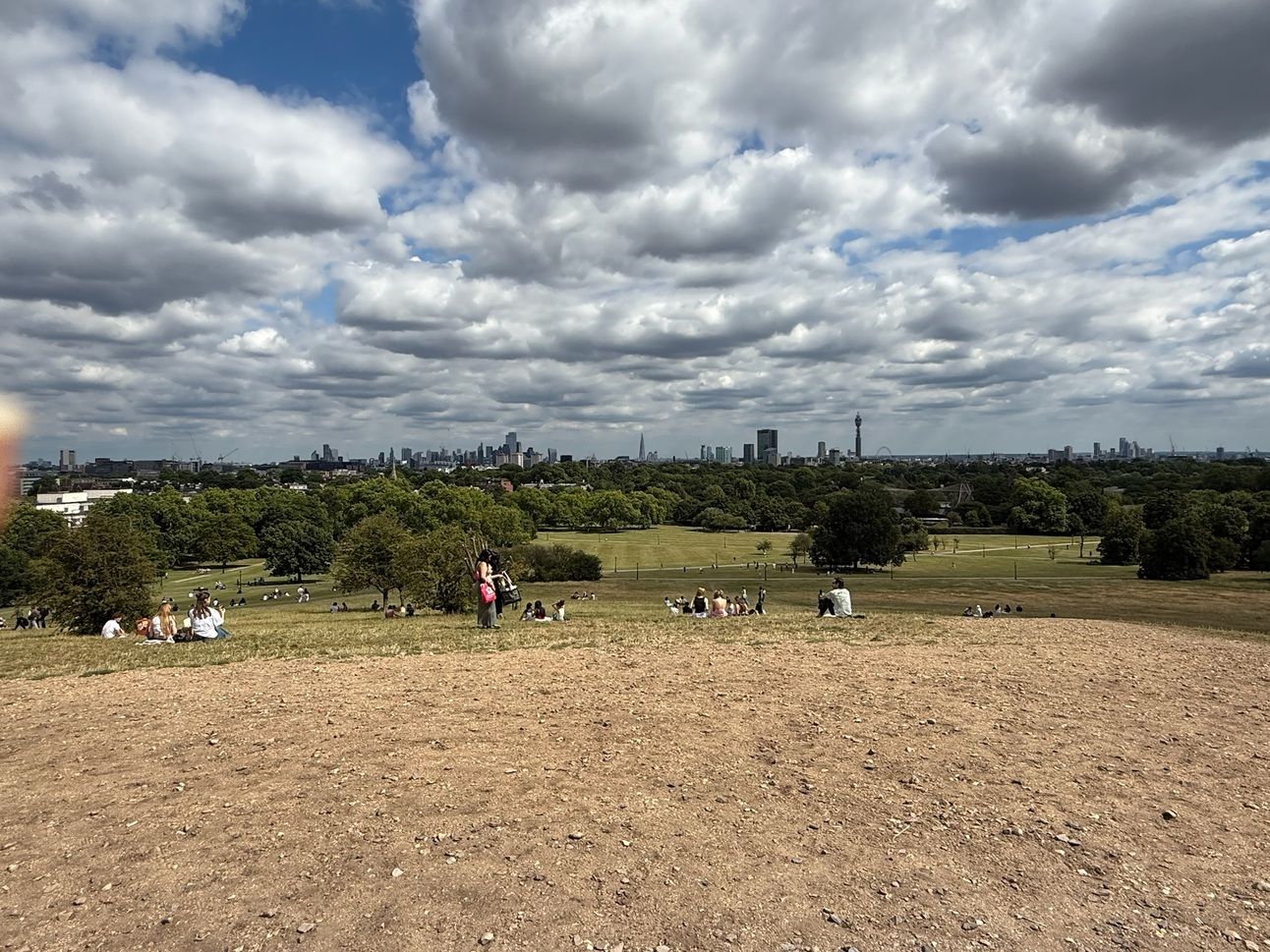
View of the city from Primrose Hill.
As we walked, I was stunned by how happy everyone seemed.
The streets were flooded with folks walking their pets, chatting in a lively manner, eating food in cafe style seating, tossing frisbees in the park, or simply lounging in the glow of the setting sun. And the most interesting thing about this was that it was a Tuesday! You may see the streets of American cities come alive on a Friday or Saturday night but certainly not on a Tuesday!
This phenomenon reminded me of a piece from a while back that Jack Raines wrote about the importance of 3rd places. And I instantly better understood what he meant when I walked around this London neighborhood.
The idea of a 3rd place is essentially somewhere you congregate with friends or family that is not your home or your workplace. This could be a pub, restaurant, tennis court, church, library, or anything else. But the point is, it is a place for you to meet with people away from the intimacy of home and away from the work orientation of your office.
London’s architecture and design facilitates community via “3rd places”. Residential buildings sit on top of cafes and restaurants. Massive parks are placed all over the city at a regular cadence (47% of Greater London is greenspace). An emphasis on team oriented sports and active activities is apparent. The willingness to completely unplug from work to do other things on weeknights is prevalent. The lack of cars force you to walk everywhere, form friendships with those you encounter everyday, and get some exercise while going about your normal life.
In my eyes, community via “3rd places” is the best attribute of London, because as Jack Raines wrote in his piece, “We are social creatures who long to be a part of a tribe, and if the pandemic has showed us anything, it was just how important one’s tribe really is.”
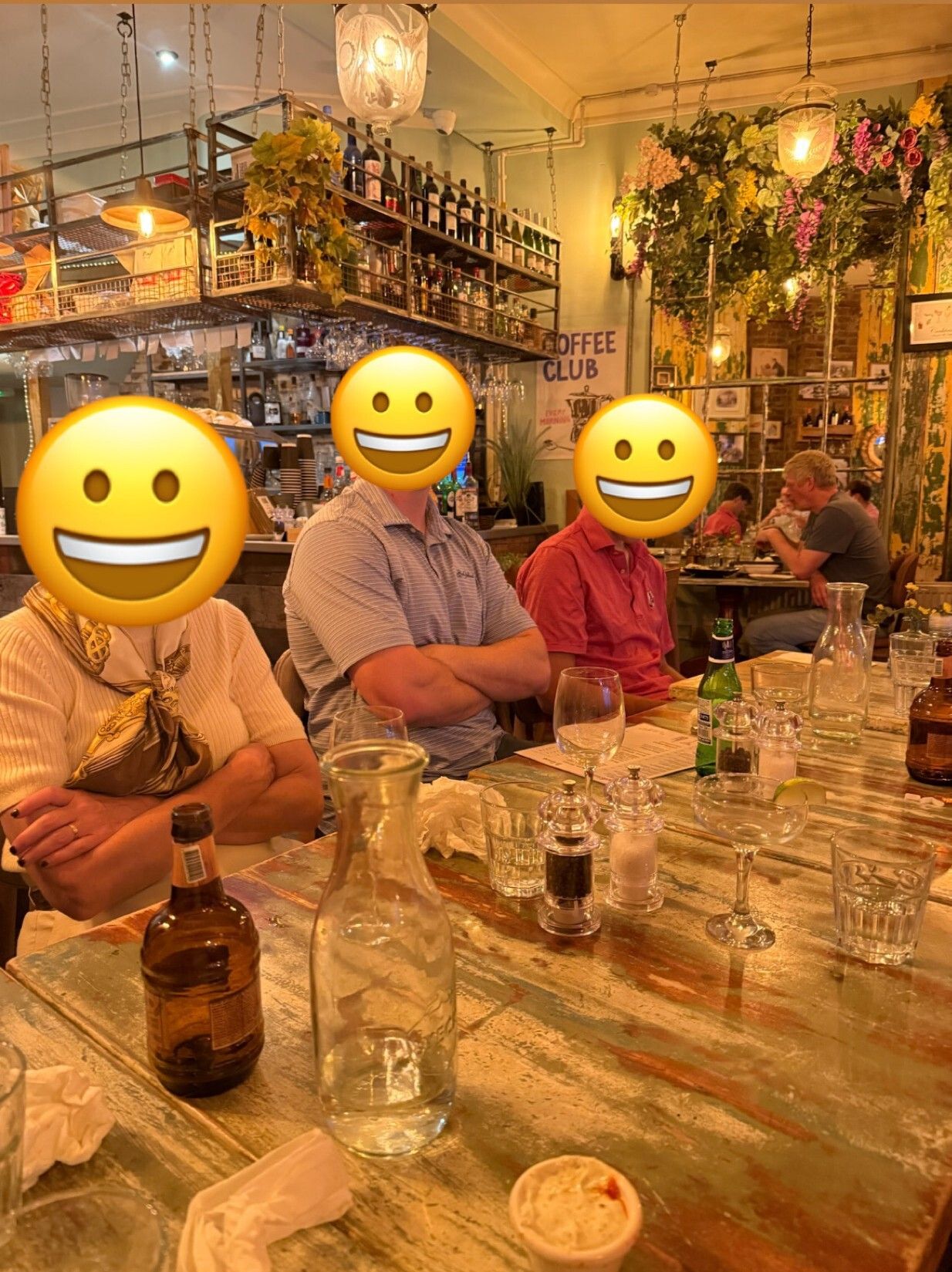
One of many great restaurants in London that serve as a “3rd place”.
In America, we largely separate areas by function.
The office is for work, the gym is for exercise, the restaurant is for eating.
Each place is defined by a single function and geographically separate from other places. So geographically separated is America that owning a car is a necessity in modern American life.
We are obsessed with progress and moving on to the next thing. As soon as we get somewhere, we are trying to accomplish that location’s goal and leave as soon as possible. If there isn’t an explicit purpose in doing something, we often question whether it’s worth doing at all.
We go to a restaurant to scarf down our food, go to the gym to burn as many calories as possible, go to work to crank out as much work as possible. And this isn’t necessarily a bad thing. Just look at the price appreciation of the S&P 500 vs whatever the British equivalent index is.
But the geographic lines that dictate the purpose of each place in London are far more blurry. You go to the pub not only to eat but to enjoy the city, catch up with friends, and enjoy the atmosphere. The focus isn’t about moving to the next place, it’s about enjoying yourself.
In London, the friction of going to 3rd places is completely removed, encouraging more people to leave their homes, even on weeknights. Everything is local and reachable by foot. You can walk a couple blocks to your favorite restaurant or park or shops quickly and the walk is easy and scenic.
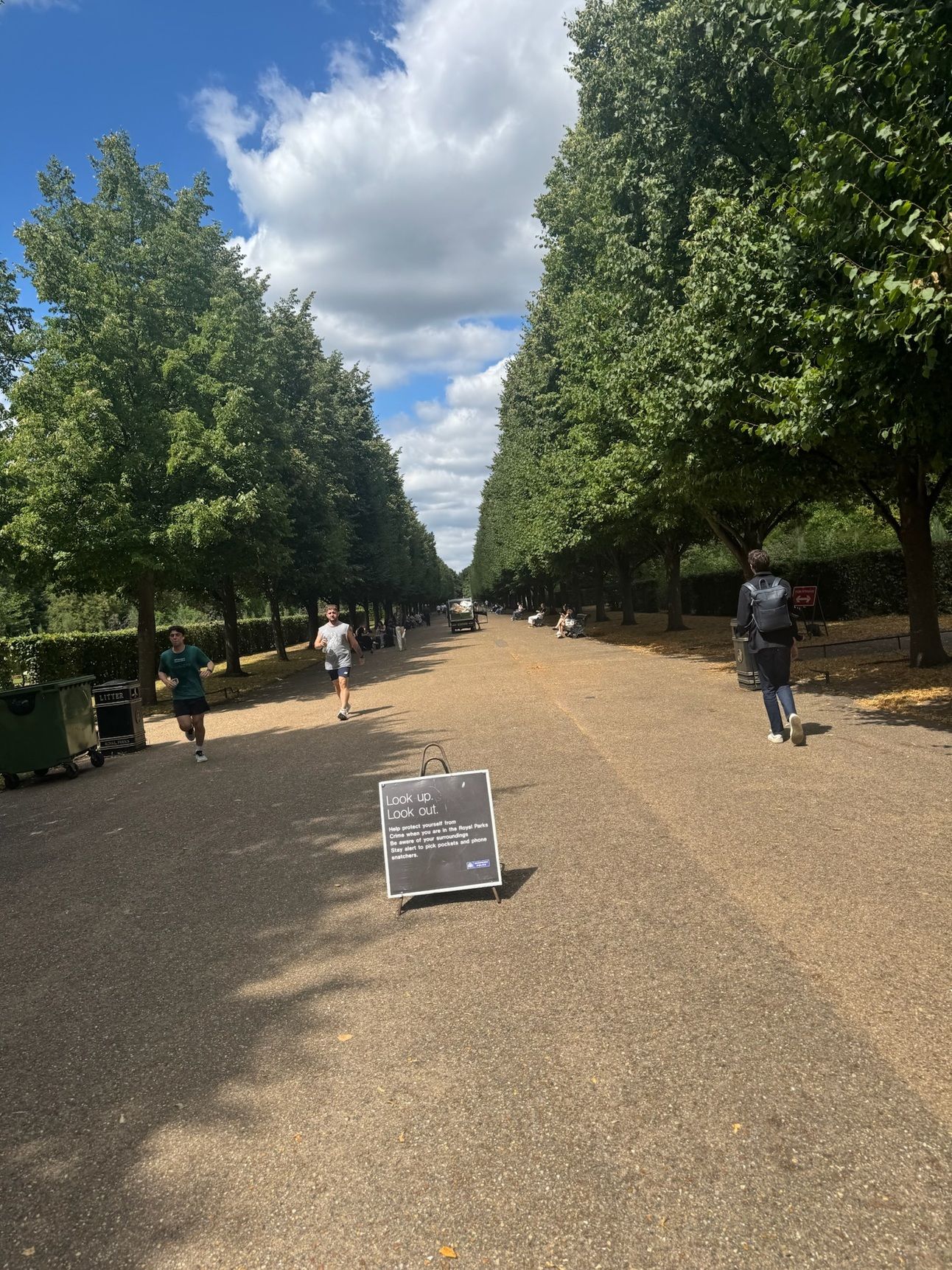
Regent’s Park.
It also seems to me that everyone there exercised but in a social way.
They don’t go to the gym, put their earbuds in, and lock-in to burn as many calories as possible then leave as soon as they can. Instead, they run in groups around their neighborhoods, play tennis with friends, or swim, often grabbing a bite to eat or coffee with those who joined them afterwards. Their exercise isn’t about maximum efficiency, it’s about enjoying nature, friends, and competition while improving their health. And ironically, judging by how fit people appear, it seems this works better for them than gym sessions do for Americans.
I think a lot of these factors contribute to why so many people there seem so happy and healthy. They aren’t living sedentary lifestyles, exercise is incorporated into daily life and social events in the city, and it’s easy to spend time outside. The walk around our friend’s neighborhood gave me an appreciation of how conducive the city is to happiness.
After our walk, we went back to the home of our family friends and sat down for dinner outside on the patio of their backyard. Their backyard was walled off from their neighbors by stone walls that gave the area the feel of being its own private piece of paradise. After the dinner I became convinced that eating good food with people you enjoy + walking regularly + lack of screens = the key to life. And London seems to encourage these three inputs.
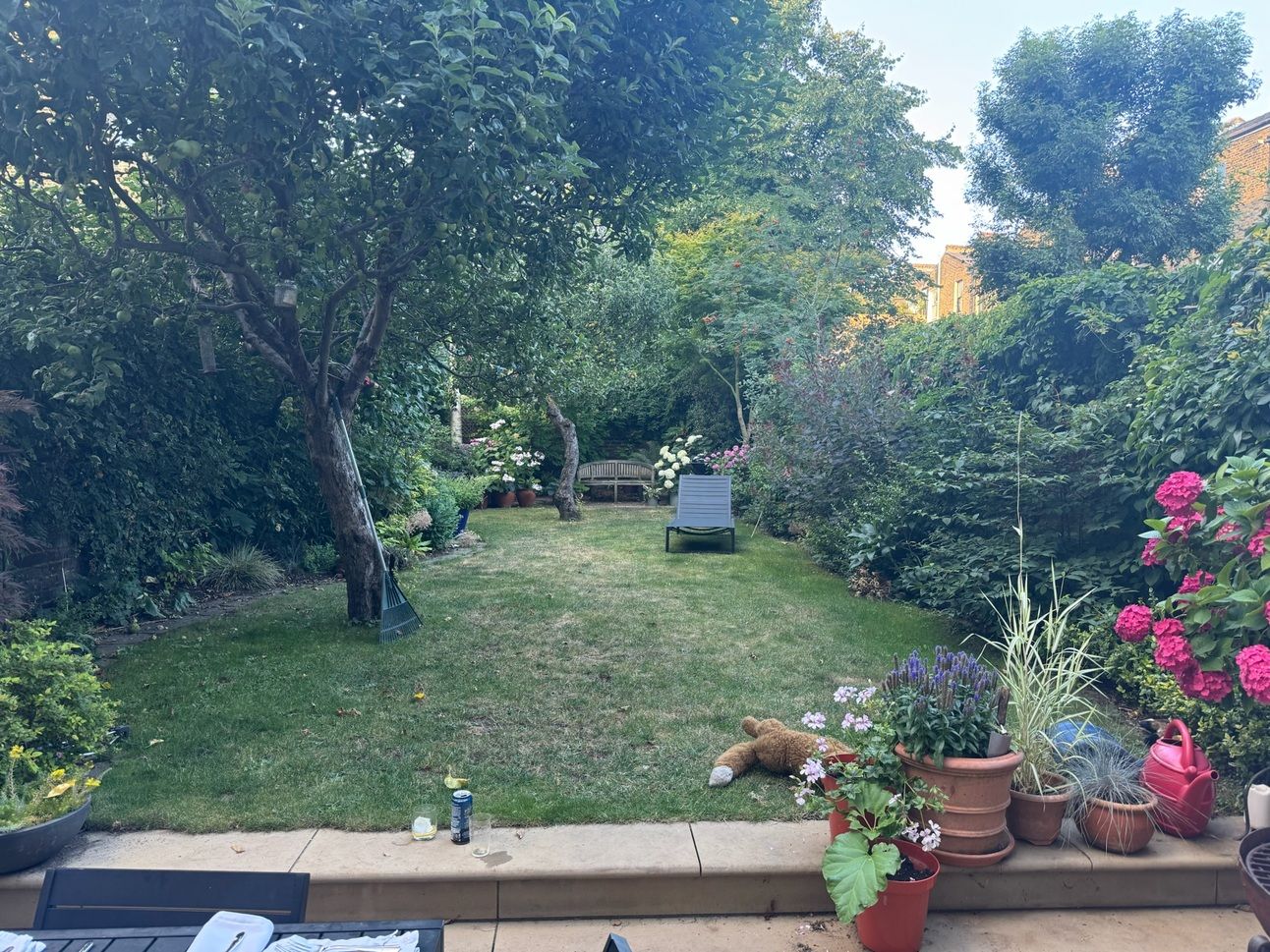
Our family friend’s backyard.
The one American city I would compare to London is New York in that it also makes the use of “3rd places” frictionless, encourages walking, and being social. New York is also similar to London in that people’s residences are often more vertical than horizontal. People live in townhomes and apartments, not sprawling suburban homes with big yards.
But London neighborhoods lack the hustle and bustle of New York and seem more family friendly. New York has a neverland quality caused by most people there being youthful transplants who know they are only going to be in the city for a limited number of years. But London seems more like a permanent home to people where they raise their families and live within blocks of their parents and the places the grew up going.
The lack of focus on money is also shocking, embodied by London’s tipping culture. Whereas when you get a coffee in the US the barista often turns the screen back to you, expectantly asking for at least a 25% tip, tipping is far more rare even at restaurants in London which is honestly awesome.
These are just some of my observations about London from the few days I’ve been here but I’m eager to hear the thoughts of readers and their experiences in London and other European cities.
I hope everyone had a great 4th of July weekend and despite my newfound appreciation for England, America will always be the greatest country in the world!
Reply